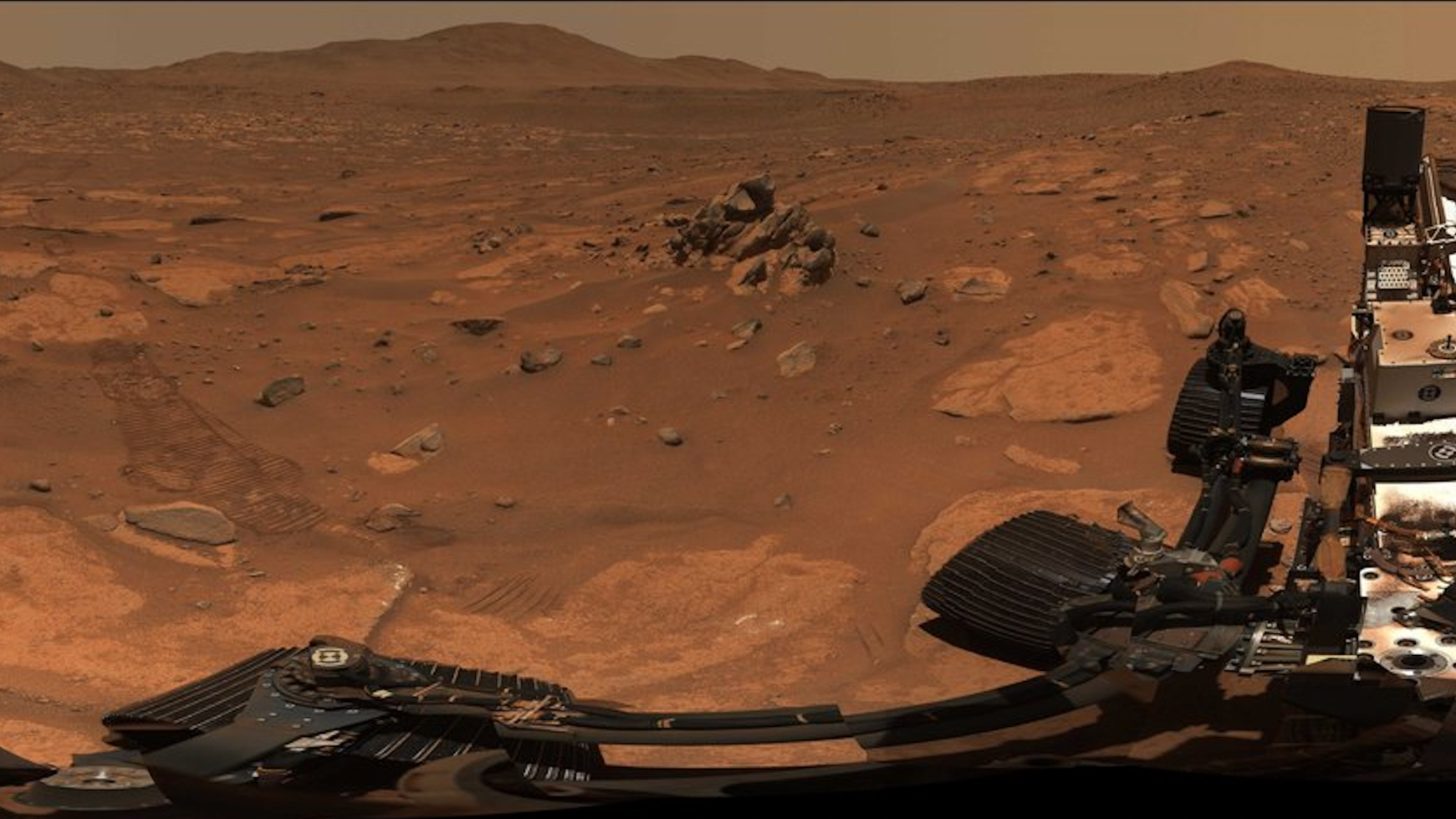
NASA's Perseverance rover just rolled past a big milestone on the Red Planet.
The car-sized Perseverance has now been exploring its exotic environs for 1,000 Mars days, or sols. (One sol is slightly longer than an Earth day — 24 hours and 37 minutes.)
"Sol in, sol out! I completed 1,000 Martian days … and my work is far from done," Perseverance team members wrote on Tuesday (Dec. 12) via the mission's official account on X (formerly known as Twitter).
That post implies that Sol 1,000 was Tuesday. However, Perseverance's image library identifies Tuesday as Sol 999, suggesting that today (Dec. 13) may be number 1,000 for the rover.
Related: Perseverance rover captures gorgeous video of solar eclipse on Mars
Perseverance and its tiny robotic partner, the Ingenuity helicopter, landed inside Mars' Jezero Crater on Feb. 18, 2021. Ever since, the big rover has been hunting for signs of ancient Mars life on the floor of the 28-mile-wide (45 kilometers) Jezero, which is a great place to do such work.
"We picked Jezero Crater as a landing site because orbital imagery showed a delta — clear evidence that a large lake once filled the crater," Perseverance Project Scientist Ken Farley, of the California Institute of Technology in Pasadena, said in a statement on Tuesday.
"A lake is a potentially habitable environment, and delta rocks are a great environment for entombing signs of ancient life as fossils in the geologic record," Farley added. "After thorough exploration, we've pieced together the crater’s geologic history, charting its lake and river phase from beginning to end."
That history begins about four billion years ago, when an asteroid impact formed the crater.
Perseverance has found that Jezero's floor is made of volcanic rock. Sandstones and mudstones atop that basal layer show that a river started flowing into Jezero, and depositing sediments there, a few hundred million years after the crater's formation, mission team members said. That flow eventually formed a large lake — one that got as wide as 22 miles (35 kilometers), with a maximum depth of perhaps 100 feet (30 meters).
The delta is also studded with boulders, which originated outside Jezero; they were carried in by powerful torrents, according to mission scientists.
"We were able to see a broad outline of these chapters in Jezero's history in orbital images, but it required getting up close with Perseverance to really understand the timeline in detail," team member Libby Ives, a postdoctoral fellow at NASA's Jet Propulsion Laboratory in Southern California, which manages Perseverance's mission, said in the same statement.
Perseverance is also collecting and caching samples, which will be returned to Earth by a joint NASA-European Space Agency campaign in the 2030s, if all goes according to plan (though there's no guarantee that it will).
The rover's sample tally is now up to 23, mission team members announced in Tuesday's statement, and in a presentation that day at the American Geophysical Union's fall meeting in San Francisco. And the haul includes some very intriguing bits of Red Planet material.
"One sample called 'Lefroy Bay' contains a large quantity of fine-grained silica, a material known to preserve ancient fossils on Earth," NASA officials wrote in Tuesday's statement. "Another, 'Otis Peak,' holds a significant amount of phosphate, which is often associated with life as we know it. Both of these samples are also rich in carbonate, which can preserve a record of the environmental conditions from when the rock was formed."
Ingenuity is celebrating the 1,000-sol milestone too, of course, and the 4-pound (1.8 kilograms) chopper's staying power is a bit surprising. Ingenuity is a technology demonstrator; its prime mission called for a five-flight campaign, to show that aerial exploration is possible on Mars despite the planet's thin atmosphere.
Ingenuity aced that task in the spring of 2021, then was granted a mission extension to serve as a scout for Perseverance. The rotorcraft has completed a whopping 62 flights on this extended mission so far, and it remains active to this day.







